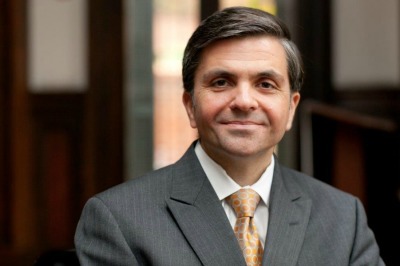God's Ideal Government

Southern Baptist thinker Jonathan Leeman wrote a fascinating essay last month on God's purposes for the state. He points out that Scripture commends no specific polity, admits that democracy has benefitted Americans, but warns against idealizing any form of government.
As Leeman notes, government's proximate purpose is to employ the "sword to approve what is good and to punish that which is bad," per Romans 13:1-7 (where Saint Paul announces that God arms rulers to chastise the wicked), and to render judgment, per Genesis 9:5-6 (where God tells Noah that murderers shall be executed.)
Leeman proposes the state's more ultimate purpose:
The ideal government, ultimately, provides a platform for the work of the saints. It builds a stage for the drama of redemption. It doesn't interfere with the church's work, and it makes sure that no one else does either.
And he adds:
Two basic kinds of governments then show up in the Bible: those that shelter God's people, and those that destroy them.
Leeman elaborates:
A good government relies on God's wisdom and justice. Specifically, it employs the wisdom of God to do justice (see also 2 Sam 8:15; 1 Kings 10:9; Ps. 72:1-2; Prov. 29:4 Ezek 45:9). It employs the power of the sword to insist that people are treated as God-imaging ends not as means. And, again, perhaps the most important way it treats humans as made in the image of God is to provide the church with the freedom to do its work.
Here's an extremely important point. A state that persecutes the church is highly unlikely to respect human dignity overall. And the state, in providing lawful order, and in opaquely foreshadowing God's justice, facilitates the church's work of redemption.
Although phrased differently, Leeman's commentary correlates largely with IRD's 1981 founding statement, Christianity and Democracy, drafted by the late public theologian Richard Neuhaus, which says:
Christians betray their Lord if, in theory or practice, they equate the Kingdom of God with any political, social, or economic order of this passing time. At best, such orders permit the proclamation of the Gospel of the Kingdom and approximate, in small part, the freedom, peace, and justice for which we hope. At worst, such orders attempt to suppress the good news of the Kingdom and oppress human beings who are the object of divine love and promise.
And it says:
God has given us no one pattern for the ordering of societies or of the world. For almost two millennia Christians have pursued their mission within a variety of social, political, and economic systems.
It continues:
We readily acknowledge that democratic governance is unsatisfactory. Everything short of the consummation of the rule of Christ is unsatisfactory. For Christians, it is precisely the merit of democracy that it reminds us of this truth and sustains the possibility of humane government in a necessarily unsatisfactory world.
Adding:
Because they are not the government, and must always maintain a critical distance from the government, the churches must speak out boldly against violations of human dignity wherever they occur.
And it concludes:
We do not know whether democracy is the wave of the future. We do know that the future will be darker if the democratic idea is extinguished. We do know that the victims of freedom's denial already number in the many millions. And we do know that one day, before the judgment throne of God, those who were voiceless will ask what we said on their behalf. What we say or do may seem to be of little moment. But in the face of every discouragement we will persist in hope because finally, as we said at the start, Jesus Christ is Lord.
IRD's manifesto is longer than Leeman's column and was written during the Cold War, in reaction against Christians who identified Christianity with liberationist themes of Marxism-Leninism. But I think Neuhaus, if still alive, likely would agree with Leeman that the "ideal government," possesses a cosmological purpose whose ends are ultimately salvific by providing a "platform for the work of the saints."




























